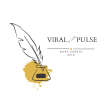Mouthwash vs. Germs: How Effective is Your Rinse Against Viruses?
Mouthwash: Your Secret Weapon Against Germs and Viruses

In the battle of mouthwash vs. germs, who emerges victorious? This question has become increasingly relevant as we navigate a world where personal hygiene is more important than ever. Let's delve into the science behind mouthwash and its effectiveness against viruses.
The Role of Mouthwash in Oral Hygiene
Mouthwash, also known as oral rinse, plays a crucial role in maintaining oral hygiene. It's designed to cleanse the mouth, eliminate bad breath, and in some cases, protect against oral diseases. But can it really combat germs, specifically viruses?
Mouthwash and Its Antiviral Properties
The antiviral properties of mouthwash have been a topic of interest, particularly in the wake of the COVID-19 pandemic. While mouthwash is traditionally used to maintain oral hygiene and freshen breath, research suggests that certain types of mouthwash may also have the potential to inactivate some forms of viruses.

- Active Ingredients with Antiviral Properties
Several active ingredients commonly found in mouthwashes have been studied for their antiviral properties. For instance, mouthwashes containing chlorhexidine, a powerful antiseptic, have been shown to reduce the viral load of certain viruses in the oral cavity. Similarly, mouthwashes with cetylpyridinium chloride (CPC) have demonstrated potential antiviral effects. CPC is a compound that's known for its ability to reduce bad breath and prevent dental plaque.
Another ingredient, hydrogen peroxide, which is often used in mouthwashes for its whitening effect, has also been studied for its potential antiviral properties. Hydrogen peroxide is a natural antiseptic that can help kill bacteria and viruses in the mouth.
- The Science Behind the Antiviral Properties
The potential antiviral properties of mouthwash are believed to stem from their ability to disrupt the lipid envelope of certain viruses. This lipid envelope is crucial for a virus's ability to infect host cells. By disrupting this envelope, the mouthwash can potentially inactivate the virus, reducing the viral load in the oral cavity.
- Current Research and Findings
Recent studies have suggested that certain types of mouthwash can inactivate the SARS-CoV-2 virus, the virus responsible for COVID-19, in the oral cavity. For instance, a study published in the Journal of Medical Virology found that mouthwashes containing CPC could inactivate SARS-CoV-2 within 30 seconds of exposure.
However, it's important to note that these studies are often conducted under laboratory conditions, and the results may not fully translate to real-world use. Furthermore, the effectiveness of mouthwash against viruses can vary depending on the type of mouthwash and the specific virus in question.
The Limitations of Mouthwash
While these findings are promising, it's important to note that mouthwash should not be considered a standalone solution for virus protection. The effectiveness of mouthwash against viruses largely depends on the type of mouthwash and the specific virus in question. Moreover, mouthwash primarily targets the oral cavity and cannot protect against viruses entering the body through other means.
Choosing the Right Mouthwash
Selecting the right mouthwash can feel like a daunting task, given the wide array of options available on the market. However, understanding your specific oral health needs and the different types of mouthwash can make this process much easier.
(CLICK HERE FOR A USEFULL ONE)
You deserve best products for yourself.
- Assess Your Oral Health Needs
Firstly, it's essential to assess your oral health needs. Are you looking to combat bad breath? Do you want to prevent cavities? Or are you interested in a mouthwash with potential antiviral properties? Identifying your needs will help narrow down your options.

- Understand the Different Types of Mouthwash
There are generally two types of mouthwash: cosmetic and therapeutic. Cosmetic mouthwashes temporarily control bad breath and leave a pleasant taste in your mouth. However, they don't deal with the root causes of bad breath.
On the other hand, therapeutic mouthwashes contain active ingredients designed to help control or reduce oral conditions such as bad breath, gingivitis, plaque, and tooth decay. Some common active ingredients include cetylpyridinium chloride for reducing bad breath, fluoride for preventing tooth decay, and peroxide for whitening teeth.
- Mouthwash with Potential Antiviral Properties
If you're looking for a mouthwash with potential antiviral properties, consider products containing ingredients like chlorhexidine, cetylpyridinium, or hydrogen peroxide. These ingredients have shown promise in reducing the viral load of certain viruses in the oral cavity.
- Consult with a Healthcare Professional
Before making any changes to your oral hygiene routine, it's always a good idea to consult with a healthcare professional. They can provide personalized advice based on your oral health status and needs.

- Read Product Labels
Finally, always read product labels carefully. Look for the American Dental Association (ADA) Seal of Acceptance, which indicates the mouthwash has met ADA criteria for safety and efficacy. Also, pay attention to any warnings or contraindications, as some mouthwashes are not suitable for children or people with certain medical conditions.
In conclusion, choosing the right mouthwash involves understanding your oral health needs, knowing the different types of mouthwash, and seeking professional advice. With the right mouthwash, you can enhance your oral hygiene routine and give your mouth the care it deserves.
The Verdict: Mouthwash vs. Germs
So, how effective is your rinse against viruses? The answer: it can help, but it's not a cure-all. While certain mouthwashes can potentially reduce viral load in the mouth, they should be used as part of a comprehensive hygiene routine, including regular hand washing and mask-wearing when necessary.
Remember, maintaining good oral hygiene is not just about battling viruses; it's also about preserving your overall oral health. So keep rinsing, keep brushing, and keep flossing – your mouth will thank you!
If you liked to read this article of me, maybe you can show your satisfaction with your likes. Thank you...
About the Creator
Bora Zubeyr Akin
Freelancer and motivational YouTuber with a knack for chess. I use strategic insights to inspire and educate. Join me on a journey of curiosity and growth.






Comments
There are no comments for this story
Be the first to respond and start the conversation.